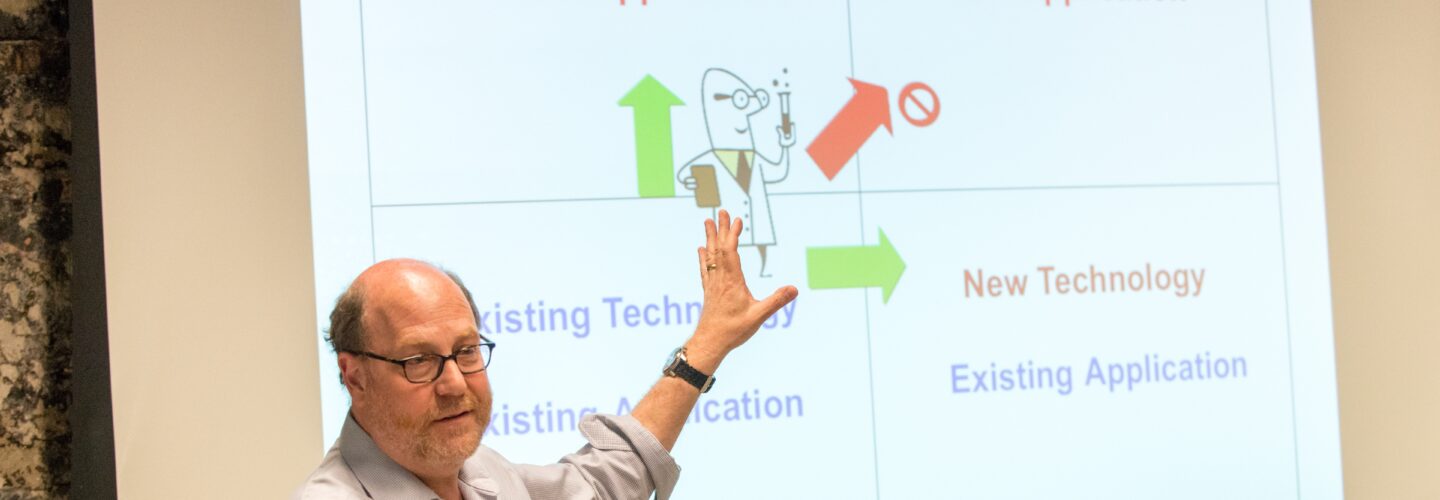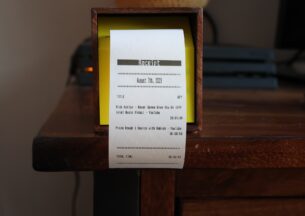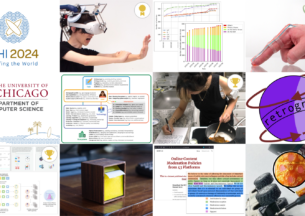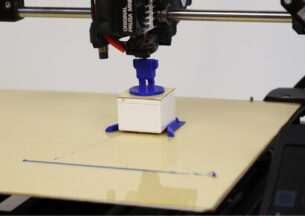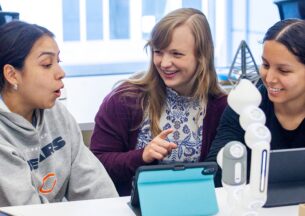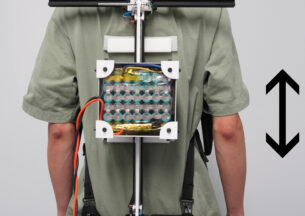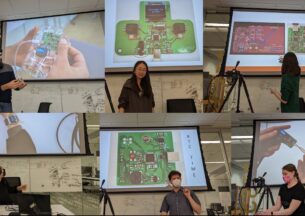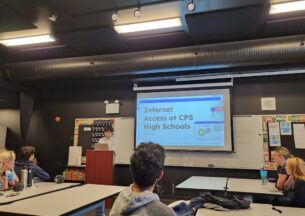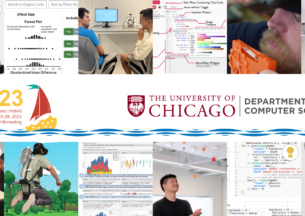Crain’s Chicago Features Michael Franklin and the Growth of UChicago CS
When Michael Franklin joined the University of Chicago as Liew Family Chair of Computer Science in 2016, his mission was to build a top-tier computer science program. Two years later, Crain's Chicago Business reporter John Pletz checks in on that process, highlighting the rapid growth and broadened expertise at UChicago CS since Franklin's arrival.
The story assesses the department's new home in the John Crerar Library (“the space looks and feels more like a tech startup than a university”) and samples the buzz around the region regarding the many faculty arrivals at UChicago CS. A new spirit of collaboration and innovation is reflected in an ad hoc partnership between two of those new faces, Assistant Professor Pedro Lopes and Neubauer Professor Ben Zhao:
Franklin is halfway to nearly doubling faculty, adding 13 members, pushing the total to 35. His recruits have come from some of the nation's top schools, including Berkeley and Carnegie Mellon. Pedro Lopes, 32, who recently earned a doctorate from Hasso Plattner Institute in Berlin, says he chose U of C over some top 10 programs.
“I had a lot of choices. A lot of it has to do with Mike and the place and time where the department is,” says Lopes, whose specialty is human-computer interaction, with an interest in wearable devices. “(U of C) was smaller and mostly dedicated to what computer science used to be . . . the theory. The version you see now is what CS is today, AI, human-computer interaction. I wanted to design how new students are going to see the field.”
Franklin realizes the irony of a program trying to transition from theory to practical applications doing so from a building that recently housed stacks of printed scientific journals that have moved online. But on a tour, he points out new lab spaces where there are prototypes strewn about. In one, Ben Zhao, a professor who specializes in data mining and security, shows off a bracelet-like device he made with help from Lopes to thwart an automated assistant such as Alexa or Google Assistant. It's exactly the kind of collaboration for which Franklin became known at Berkeley's AMPLab (algorithms, machines and people), in large part, by putting faculty and students side by side.
You can read the full article at the Crain's Chicago Business website.


